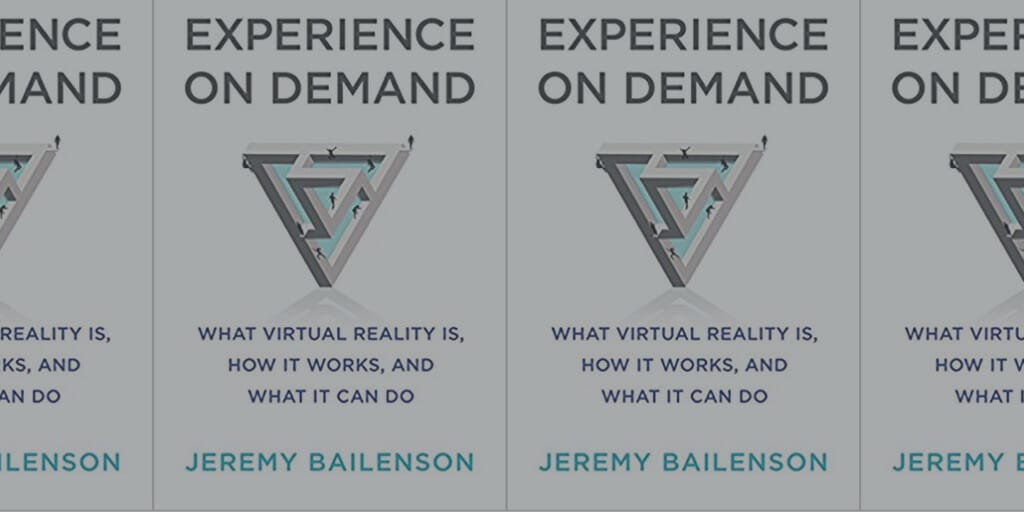Virtual reality (VR) is on the brink of making a major impact on everyday life. Organizations of all types should take heed to the technology now, lest they miss out on the enormous benefits of a technology that can literally alter one’s perception of reality through virtual experiences. In his forthcoming book, “Experience on Demand: What Virtual Reality Is, How It Works, and What It Can Do” (Norton, January 2018), Stanford University Professor Jeremy Bailenson explains not only the impact of VR on human psychology and how it can be employed in numerous practical ways, but gives numerous examples of how it is being implemented to solve real world problems, such as training sales people to handle holiday rush crowds, conditioning football quarterbacks to read defenses quickly, and deepening empathy through virtual role-playing in diversity and inclusion exercises for organizations and teams.
Bailenson, a communication professor and founding director of Stanford’s Virtual Human Interaction Lab, is the world’s foremost expert on VR. With his lab at the forefront of VR technological development, he has an insider’s insight in demonstrating how this revolutionary media can be used to effectively train workers, revolutionize education, and even change fundamental human behavior for the better.
“Experience on Demand,” to be released on January 30, 2018, has received advanced praise from readers including renowned futurist Kevin Kelly (“Few people alive know as much about VR as Jeremy Bailenson…Read this before you enter this new world.”) and Pro Football Hall of Fame quarterback Joe Montana (“Virtual reality is changing the way athletes train. This book is a must-read for anyone who wants to understand and hone performance through VR.”).
If every new technology or idea has an essential treatise on its implications for society, “Experience on Demand” serves that purpose for VR. And rest assured: this is no inconsequential entertainment gimmick. “VR is not some augmentation of a previously existing medium, like adding 3D to movies, or color to television,” says Bailenson. “It’s an entirely new medium, with its own unique characteristics and psychological effects, and it will utterly change how we interact with the (real) world around us, and with other people.”
Bailenson’s insights, straight from the most up-to-date VR lab in the world, are essential reading for 2018. Preorder your copy of “Experience on Demand” today.

